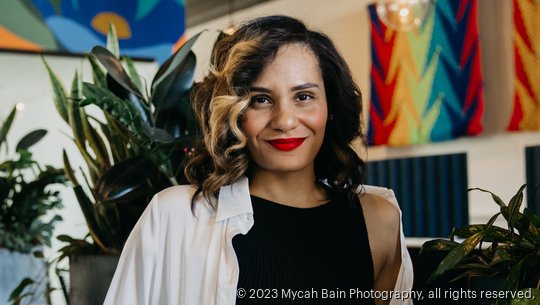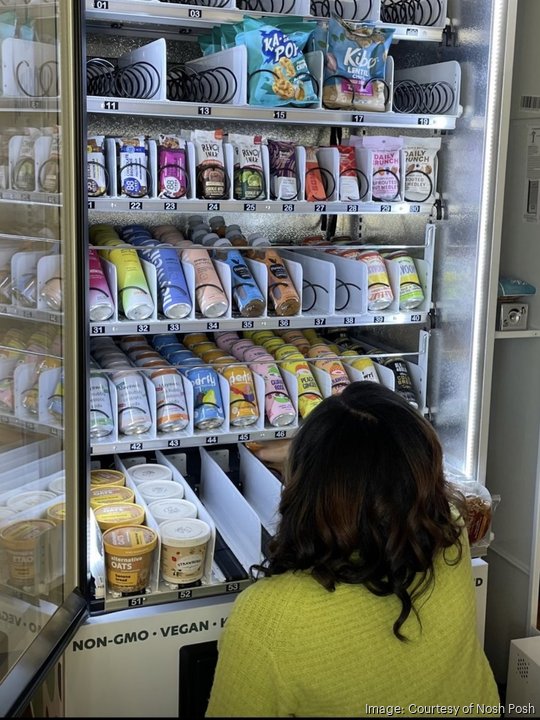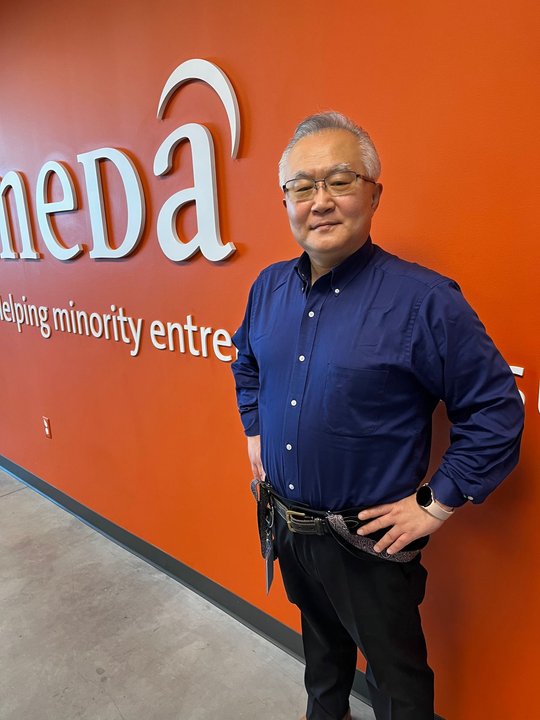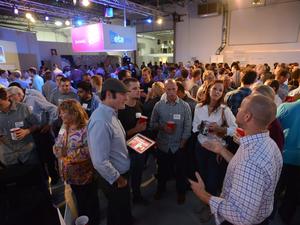
Editor's note: In Workshop, a panel of experts helps a growing company overcome a business challenge.
Three years after launching snack company Nosh Posh, North Minneapolis entrepreneur Tatiana Freeman struggles to sustain her business.
Freeman's goals: To nourish her community with healthy convenience, push minority-owned brands into the spotlight, and support companies' diversity. She began by trademarking vending machines that sell snacks and prepared meals from minority-owned brands such as Biena Snacks, Little Apple Treats and Perfection Snacks. She operates seven machines throughout Minneapolis, mostly in coworking spaces. Freeman also offers a workplace snack program and curated snack boxes for meetings and events.
The vending machines have proved a challenge, though. Each machine cost around $7,500 and Freeman doesn't own a vehicle with cargo space. Her snack programs have also struggled to land customers.

Freeman participated in accelerator programs like Lunar Startups and Beta. She recently earned a $25,000 grant from The Boundless Futures Foundation. That grant went largely towards paying down debt, as Freeman ran out of money last fall and has been operating in the red since.
In a Business Journal workshop in early April, Freeman heard from these local experts on how they would improve Nosh Posh's prospects and build more business-to-business customers while still pursuing its profitable mission:
Tina Rexing – T-Rex Cookie CEO and founder
Alec Johnson – associate professor, University of St. Thomas – Opus College of Business entrepreneurship department. Johnson also founded North Star Valor, a local nonprofit that supports combat-wounded veterans.
Paul Yu – senior director of business consulting, Metropolitan Economic Development Association
Overall, panelists advised Freeman to narrow down her product offerings, build a support system and prioritize sustainability.
Step one: Focus
Panelists agreed that diverging operations was too much to juggle as a new business, they said. Each had ideas and strategies on how Nosh Posh could concentrate.
Rexing and Johnson suggested prioritizing highest-margin products, focusing on B2B and scrapping the vending machines.
"It's a great idea except for upfront costs," Rexing said of vending machines, citing experience. "I stopped because I was stocking [them] myself and the margins made it not worth it."
Yu, though, liked vending machines as a business focus. If Freeman focused on B2B, he noted, she'd spend more time in sales, something she didn't believe she excelled at, and those deals wouldn't be as permanent as vending machines.
Panelists also advised Freeman to re-evaluate who her customers were. If her goal is to highlight minority-owned businesses, she may be doing herself a disservice by not charging them.

"It seems selfish, but if you don’t exist, who's going to help them?" Rexing said.
Focus, Rexing said, comes down to turning down things that don't serve you. It's also asking, "What do I want to be when I grow up?" Afterwards, a game plan can be drafted, she said.
Panelists asked if Freeman wrote a business plan. Freeman said she is using a program with college students writing it. They advised against using outside agencies.
"Lock yourself in a room for 10 hours and write that business plan yourself," Rexing said.
Yu agreed that outsourcing wouldn't be as effective.
“It might not be as flawless,” Yu said. “You may not be at the level of economics and business analysis, but it's your business and you know what you’ve been doing.”
Public versus private funding
Freeman asked about focusing on her social missions like food deserts, because there are many funding opportunities she could access. Panelists advised caution with funding requiring focuses on specific missions.
“The success of the business will give you the platform to address the social causes you would like to address," Johnson said. "Otherwise, you’re not going to grow and make the impact that you actually desire."
Rexing added: “There’s a lot of money out there, and it’s really tempting to turn your business into a specific [thing] so you can get that money. … You want your business to run on its own and not have to depend on that outside money.”

Yu said there are many ways to fund a business.
"A commercial bank will look for a solid financial track record with experience in the industry – you have three years," Yu said. He said if she created a clear, achievable plan and analysis of her business, she may have a compelling case for the bankers.
Identify weaknesses
Rexing said to identify competitors' weaknesses. Once you understand who you're up against, you can go to battle with them.
It was also important Freeman understand her own weaknesses. If she focused on B2B, she would have to work through her apprehension to sales. Freeman has hired communications and administration freelancers, but Rexing argued when money is tight, those roles aren't as important.
"Put your money in sales. ... Figure out how to do it yourself or hire someone," Rexing said. "Find one person who believes in your brand more than you do."
Create a hit list and hammer one at a time
To acquire B2B relationships, Freeman would have to be strategic and persistent, Johnson advised. "Ask yourself, 'Who's a client that can help me grow?'"
Johnson said to create a hit list of ideal clients and relentlessly hammer only one at a time.
Yu added one of the best ways to expand one's network is always ask for referrals and introductions.
Networks are also valuable to help entrepreneurs prioritize their mental health. Rexing, who said that stress is an overlooked concern among entrepreneurs, advised Freeman to build her network of mentors and colleagues and regularly connect with them on both wins and struggles.








